Sirat arrives in official competition at the 78th Cannes Film Festival as the culmination of a triumphant career at the competition, which has counted Oliver Laxe‘s entries as awards in every category in which he has participated. In 2010, he won the Fipresci Award at the Quinzaine with All You Are Captains; in 2016, the particular western Mimosas took the Grand Prix at the Semaine de la Critique; and in 2019, the rural drama Fire Will Come won the Jury Prize at Un certain regard.
The lunar landscape of Jebel Saghro, in Morocco, possesses the imposing grandeur of making a human being feel helpless, of measuring him on a physical and mental scale, which transforms his journey into an experience revealing his true nature. Laxe returns to Morocco with Sirat, an extraordinary, unique and sensorial work, which offers the viewer the opportunity to vicariously confront his own fears, in a metaphysical yet tangible experience, filmed by Mauro Herce (Fire Will Come) in all its rawness and with an apocalyptic breath. This is not new in the director’s career, it can be argued, but it is commendable that his proposal continues to evolve, or if you prefer, to radicalize, which in an artist means that he continues to explore his deepest desires about the human condition and the possibilities of art, in this case cinema, to capture them in an increasingly personal and unprecedented way.
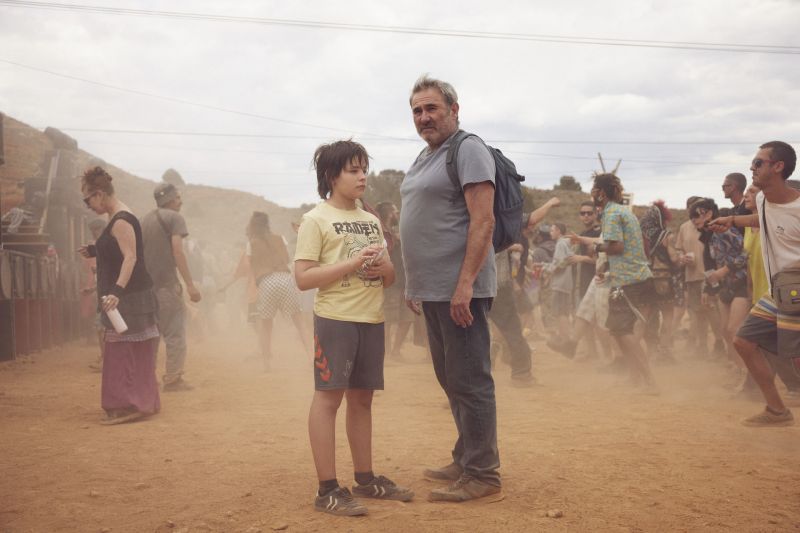
The story of Sirat, co-written with Santiago Fillol (Mimosas), and co-produced by El Deseo and Movistar + among others, starts with the definition of its own title, the Arabic word that describes the narrow road that leads to paradise, strewn with trials and difficulties, a footbridge between our life and Eden, which extends over the threatening hell. The first scenes of the film show close-ups of the powerful speakers that quick, tanned, dirty, tattooed hands pile up like a prayer wall. Gradually the shot opens up to show a human tide of modern dervishes, two steps away from becoming the cast of Mad Max —and as we will see later, this is not just wardrobe rhetoric— the participants in a spectacular rave framed by the desert mountains.
The credits introduce us to the main characters: Steffi (Stefania Gadda), Josh (Joshua Liam Henderson), Tonin (Tonin Janvier), Bigui (Richard Bellamy) and Jade (Jade Oukid), the dancers who play themselves, a family of choice, whose existence is organized in community and based on the eternal journey from one party to the next. Moving around and living in their rickety but efficient vehicles, these techno nomads, in the middle of the desert nomad country, follow their own rules, constituting a marginal human group in many ways.
In the midst of collective euphoria, two characters appear, whose conventionality contrasts with the camp environment: Luis (Sergi López) and his son Esteban (Bruno Núñez), who travel in a van looking for Mar, their daughter and sister, respectively. From there, a surprising journey of inquiry and discovery begins, from the depths of pain and absolute loss to enlightenment and revelation.
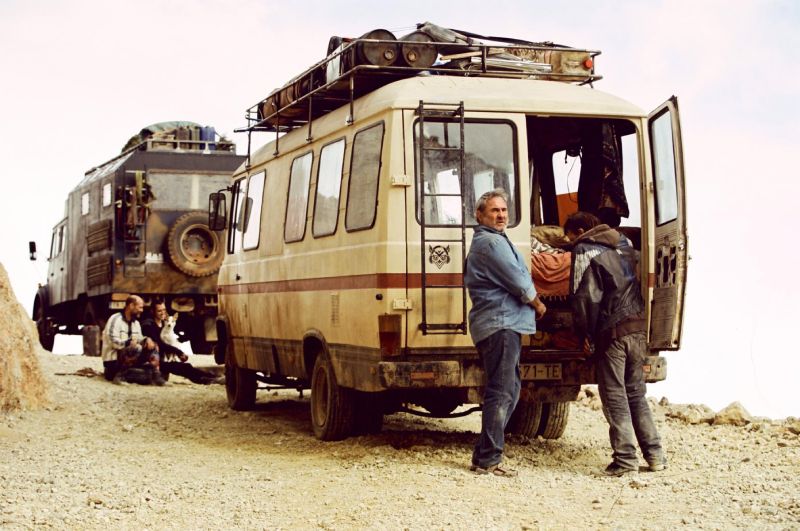
As the Franco-Spanish director stated in an interview with Variety: It’s a bit like the Tao. The film is a journey, a rite of passage. There’s something of the hero’s journey, this stripped-down, annihilated hero who must look inward. It connects with the traditions of the Grail and legends that come from India and Persia. These stories always have two layers: the physical and the metaphysical.
The mystical aspect in Laxe’s films acquires a more absolute entity in Sirat, it is not an underlying or characterological theme of the characters but its backbone. This does not mean that the director places us in a spiritual plane through the image, as could be the case of Lois Patiño with Samsara, on the contrary, he introduces the most threatening aspects of our reality, such as the possibility of a third world war and perhaps the end of the world as we know it. The presence of military vehicles and soldiers that dissolve the rave in which Sirat‘s characters find themselves, brings us back for a moment to the prose of weapons and power struggles as the antithesis of the nirvana fabricated by the protagonists. The response to this situation will be the trigger of an escape through the desert and, although they do not yet know it, the starting point of this inner search through total detachment, to reach the other shore.
Kangding Ray‘s evocative music is a perpetual heartbeat that accompanies the journey, the different trials faced by the group and also the moments of repose of these particular gentlemen of the round table, humble and generous. Laxe takes us away from the increasingly commercial posturing of Burning Man and its imitations, to take us to the core of the experience, with the honesty to compassionately expose the weaknesses, not only of the character that represents the establishment but also of those who have chosen to live on the fringes of it.
The confrontation with the successive tests to which they will all be exposed punctuates the illusory sensation of having reached a state of beatitude, through their alternative refuge and psychedelic drugs as factors of enlightenment and inner exploration, with the blatant demonstration that dynamites their self-confidence. Facing the unknown, the most terrible, they discover that their resources are not enough, while the viewer is shaken again and again from his stupor, forced to react to a film that leaves us stunned and devastated.

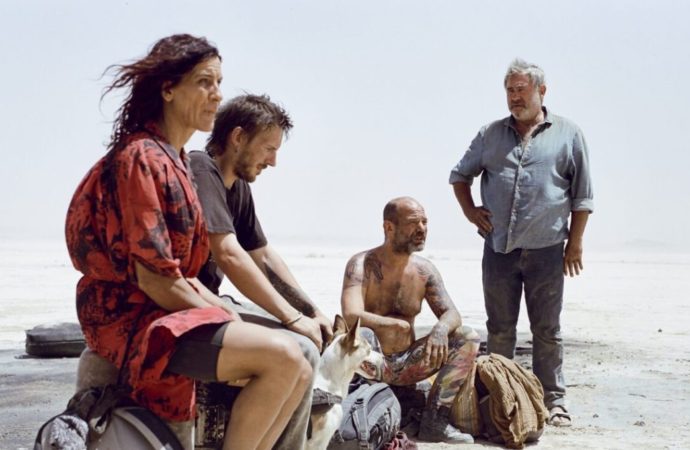

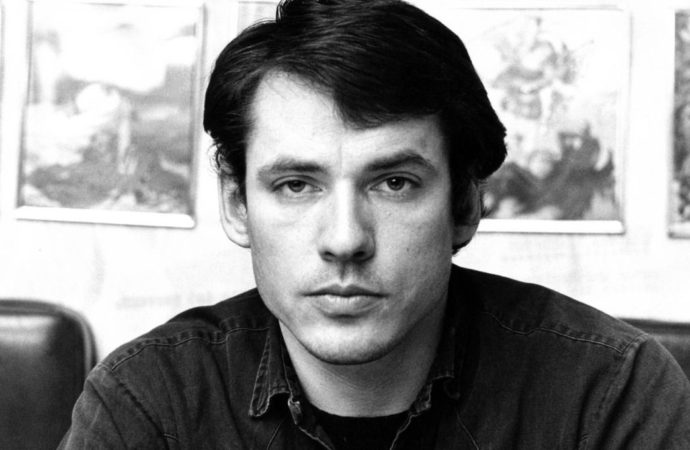
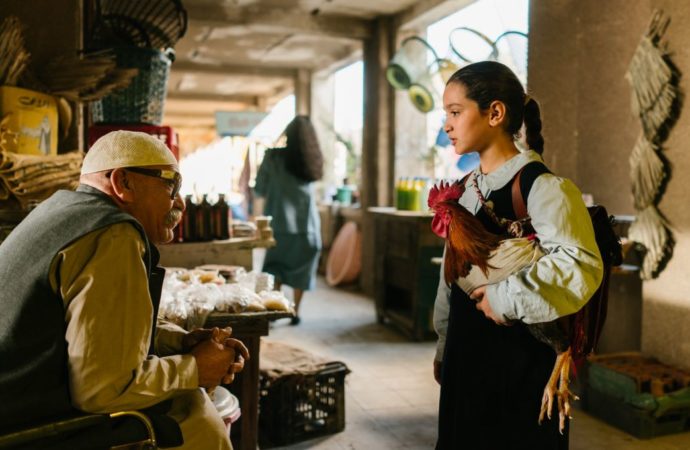
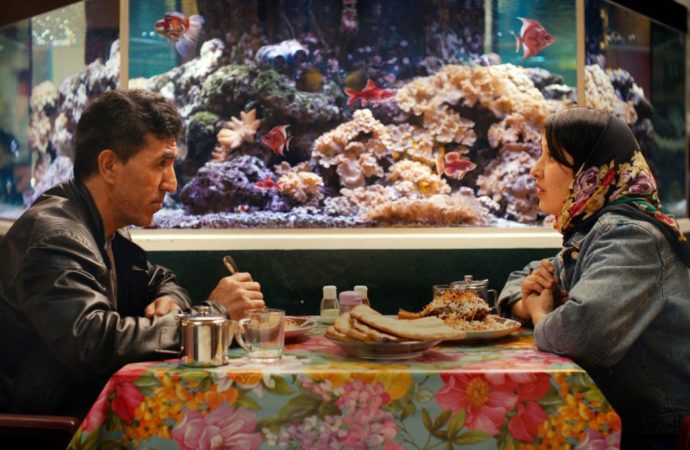

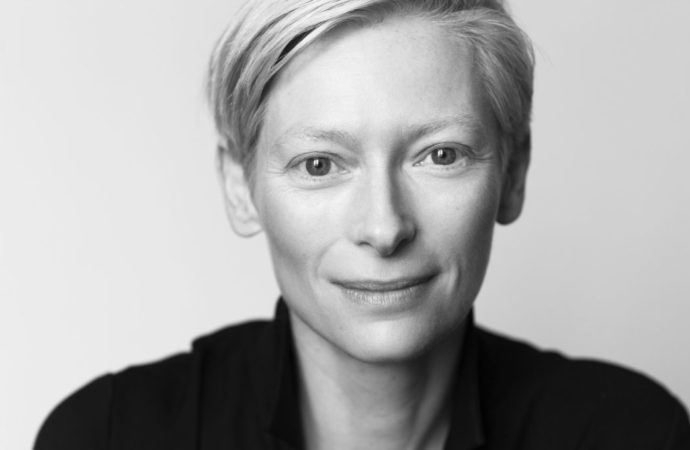

No one has posted any comments yet. Be the first person!